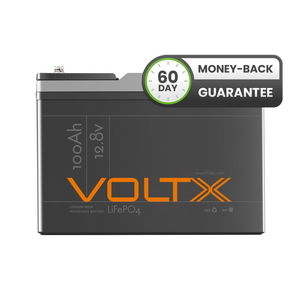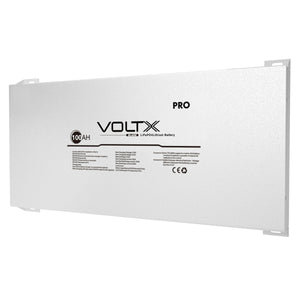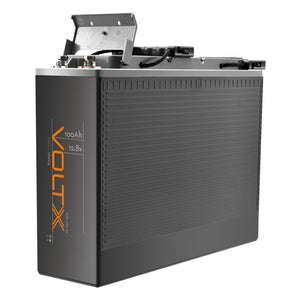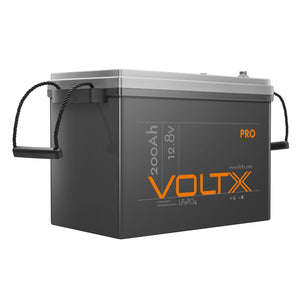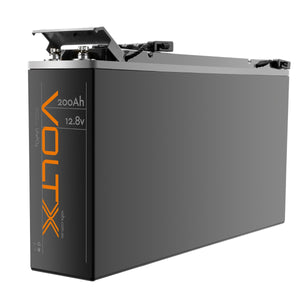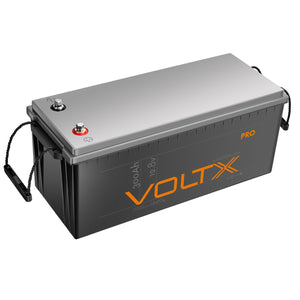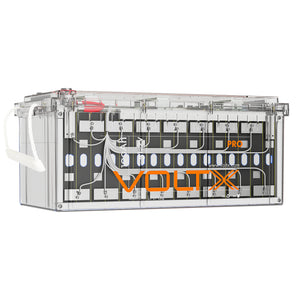There are batteries for all sorts of outdoor adventures and activities, and boat batteries are designed and made specifically for boats. In general, boats have at least two types of boat batteries. The first type of boat battery is to start the boat and crank it, ready to go on whatever adventure you have planned. The other type of boat battery is known as a house battery. This is the battery that will sustain a power supply to your boat over a long period of time and will power all your other battery-operated needs when you are out on the water. We 're talking lights, electricals and accessories. A house battery is usually a deep cycle battery that can discharge slowly over a long period of time and also withstand charging and discharging cycles many times over.
Boat batteries are different to car batteries in some ways, and that 's why it 's not advisable to substitute a car battery for a boat battery on your vessel. You need to use specialised marine batteries. For one, boat batteries have a much tougher design and are more durable as they have to withstand much more vibration from the water and from the boat being transported on a trailer.
How to choose the right boat battery?
This is going to depend on the purpose. As already mentioned, if they have the capacity, boats usually have a dual system to fit different purposes, so the first thing to think about when choosing boat batteries is the application. It 's also important to check your boat 's manual to give more information on the right fit for your boat or ask a marine dealer.
Choosing a cranking battery for your boat, while not the same as a car battery, will take into consideration the same main factor, which is the cranking amps, or for boat batteries - marine cranking amps. This is the short burst of power needed to start your boat engine. For boat batteries, a large amount of current, from about 75 to 400 amps, needs to be delivered, so your starting battery has got to be able to deliver.
For the house battery, there are a number of deep cycle batteries to choose from. These batteries will have thicker plates that help the battery recover completely after being heavily discharged over longer periods. However, the two main types are lead acid batteries: flooded cell and absorbent glass mat (AGM) batteries. Flooded lead acid batteries are the more basic and traditional technology. They are filled with a sulfuric acid solution and need to be monitored regularly. The batteries also need to have distilled water added to them to top up the levels. Overall, this makes them pretty high maintenance. On the other hand, in AGM batteries, the electrolyte solution is sealed in saturated fibreglass sheets that don 't leak and don 't need to be topped up with water, earning them the reputation of being maintenance-free. They also charge faster. However, neither of these boat batteries have a very long lifespan, and they are heavy. Naturally, the weight will make a difference on a boat, so you 'll want to look for a battery that provides quality while not weighing down your vessel. That 's why it might be worth considering a lithium-ion battery as they have high performance compared to other types of boat batteries in efficiency, lifespan and weight. Their initial cost is much higher, though, so that 's something to think about as well.
How to connect a boat battery?
As always, safety first when you connect boat batteries as you are dealing with electricity and messing around with it or doing it incorrectly could end up causing damage to your boat or your person. Make sure you wear the correct safety equipment too.
Before connecting your new battery, make sure everything is clean and corrosion-free, the wires are in good condition, and the wire size is correct for the new battery. If in doubt, check with the manufacturer. Boat batteries need to be put in a place where they won 't move around as boats are prone to move and pitch and roll and vibrate, and you don 't want your battery doing that. Strap it tightly into the battery cubicle or, if there isn 't one, inside a securely-mounted battery box. After double-checking that the battery is secure, connect the cables to their correct ports, starting with the black cable and the positive cable.
A good safety tip to remember is to install a cover over the positive battery terminal of your boat batteries. This will prevent arcing, where an electrical current flows through the air, sparks or the risk of an explosion if something such as a tool is dropped on the terminal.
You need the right product to get you out on the water and for all your outdoor activities. At Outbax, you can buy boat batteries and golf cart batteries, gel batteries, RV batteries, and setups for solar batteries, amongst others. We will deliver your order Australia-wide, so you are ready to head out.
